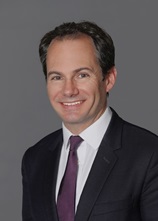Antitrust/Competition Update
Ref Blows the Whistle on Anticompetitive Conduct in EU Sports Governance
There has been a recent proliferation of EU competition investigations and enforcement actions against sports governing bodies (SGBs). While SGBs enjoy a certain level of autonomy to regulate their respective sporting disciplines, they must do so in compliance with EU competition law. Importantly, competition law seeks to navigate the potential conflict of interest between the dual role held by SGBs in both regulating and organising (and earning revenue from) sporting activities.
There may be more to come. Last month, FIFPRO Europe, European Leagues, and LALIGA filed a joint complaint to the European Commission (Commission) that accused FIFA of abusing a dominant position with respect to its plans to increase the number of men’s international matches in the 2026 FIFA World Cup and introduce a new FIFA Club World Cup in 2025. The complaint alleges that FIFA has “oversaturated” the international calendar, risking player safety and well-being. The Commission will consider the complaint and decide whether to open a formal investigation into FIFA’s conduct.
In another possible case, the chairman of LALIGA has publicly accused UEFA of abusing a dominant position by agreeing to extend its “strategic partnership” with the European Club Association (ECA), which determines that the ECA is the only association representing football clubs in Europe.
These developments follow a series of competition enforcement actions being upheld by the EU courts against FIFA, UEFA, and other SGBs:
- Diarra: Former French footballer Lassana Diarra challenged FIFA’s player transfer rules following a 2014 dispute with Russian club Lokomotiv Moscow when Diarra terminated his contract early. The Court of Justice of the European Union (CJEU), the highest court in the EU, held that aspects of FIFA’s rules that restrict the ability of players to leave their clubs mid-contract are akin to a no-poach agreement that would violate EU laws on competition and free movement (read more here).
- European Super League: Twelve football clubs sought to establish a new “European Super League” and challenged FIFA and UEFA’s prior authorisation rules for rival tournaments. The CJEU held that the rules must be exercised in a manner that is transparent, objective, nondiscriminatory, and proportionate. Otherwise, the rules would confer on FIFA and UEFA an unlawful advantage by enabling them to deny competitors access to the market and favouring their own economic activities. This would qualify as a restriction of competition by object or as an abuse of dominance in breach of EU competition laws.
- International Skating Union: Two professional speed skaters complained to the Commission that prior authorisation and eligibility rules of the International Skating Union (ISU) infringed competition law. As with European Super League, the CJEU found that to be compliant, such rules must be exercised in a transparent, objective, nondiscriminatory, and proportionate manner.
- Royal Antwerp: A professional football player and Royal Antwerp FC challenged UEFA rules that required clubs participating in UEFA tournaments to enter a minimum number of so-called “home-grown” players who have been trained by that club or within the same country. The CJEU found that such rules are likely to infringe EU laws prohibiting anticompetitive agreements as they limit or control clubs from recruiting talented players, which is an essential parameter of competition. The CJEU left it open to the referring court to determine whether the rules restricted competition by object or by effect.
The Commission is undergoing a change in leadership and has nominated sports Commissioner Glenn Micallef, who in his confirmation hearing emphasised that the Commission must ensure that sports governing bodies comply with competition law.
Beyond competition law, Micallef has indicated possible activity to explore investment in European sport by non-EU actors. This is also a hot topic in the UK, where the government has reintroduced a draft Football Governance Bill to establish an independent UK football regulator and has dropped the requirement for the regulator to consider “foreign and trade policy” in its approval of club takeovers.
Key Takeaways
It is evident that SGBs will remain under the spotlight for competition law compliance. It would be prudent for SGBs to review their rules and the manner in which they are enforced, particularly those relating to prior authorisation of rival tournaments and player eligibility criteria, to ensure that such rules are compliant with EU competition law.
If the substantial and procedural framework for enforcing such rules is clear, fair, and objective, such rules can be defended. The crucial issue is that market access for potential competitors — and any related disincentives — is regulated in a manner that is transparent, objective, nondiscriminatory, and proportionate.
While the CJEU has left it open for SGBs to raise arguments that their conduct can be justified by pro-competitive efficiencies, or that their rules are indispensable to pursue a legitimate objective, it is unlikely that such arguments would succeed unless the above criteria are met.
Attorney Advertising—Sidley Austin LLP is a global law firm. Our addresses and contact information can be found at www.sidley.com/en/locations/offices.
Sidley provides this information as a service to clients and other friends for educational purposes only. It should not be construed or relied on as legal advice or to create a lawyer-client relationship. Readers should not act upon this information without seeking advice from professional advisers. Sidley and Sidley Austin refer to Sidley Austin LLP and affiliated partnerships as explained at www.sidley.com/disclaimer.
© Sidley Austin LLP
Contacts
Offices
Capabilities
Suggested News & Insights
- Stay Up To DateSubscribe to Sidley Publications
- Follow Sidley on Social MediaSocial Media Directory


